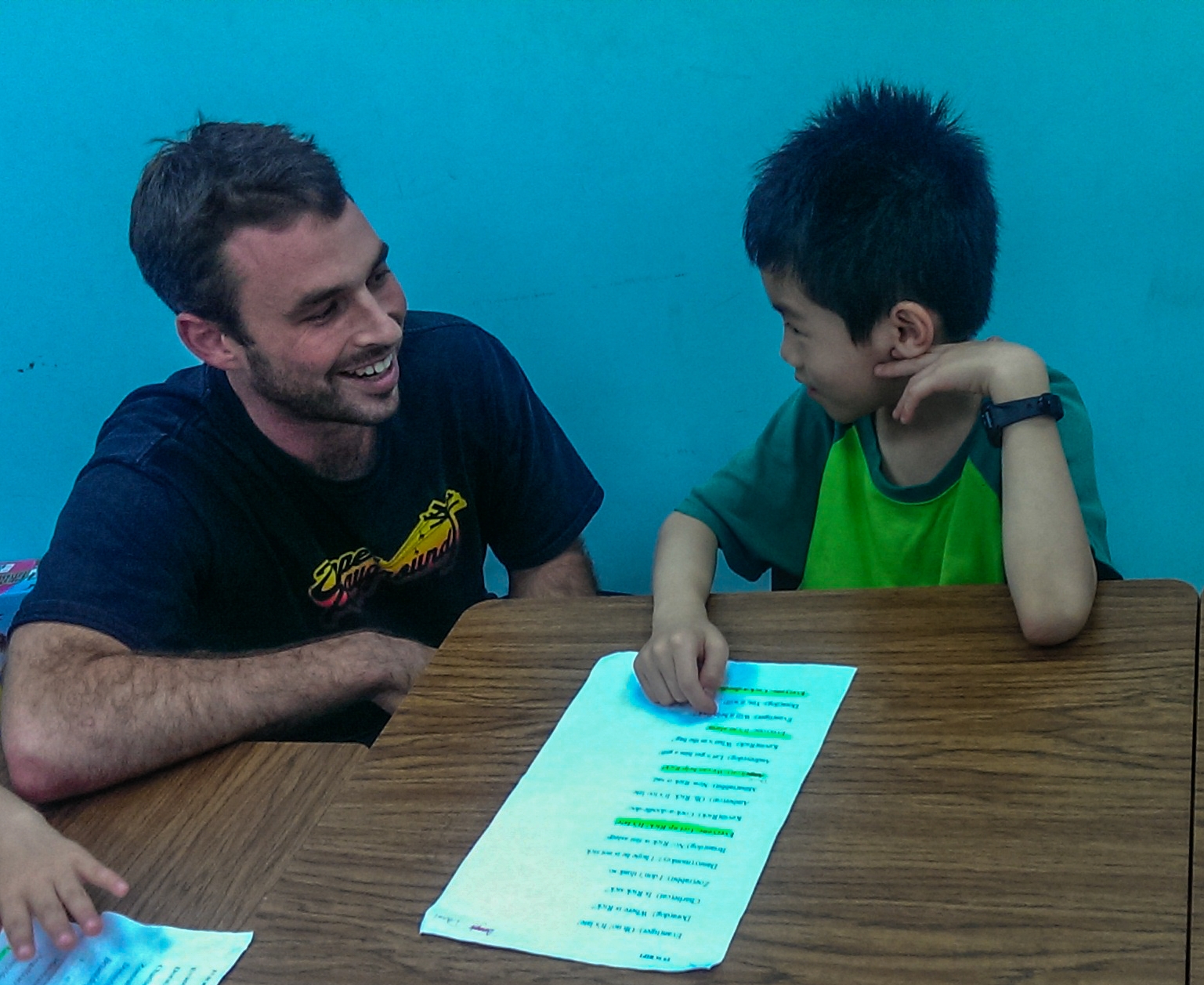Oral English Assessment Ideas

The oral English assessment is an important part of students’ education. It is easy to put together an English test, however, it can be challenging knowing how to tie all your lessons together in an oral English class.

1. Itinerary Presentation
Have you taught units on shopping, souvenirs, food, and sightseeing? A perfect way to tie all these units together is with an itinerary presentation. Have your students put together a two-minute powerpoint presentation about an exotic location they have never heard of but want to visit.
Make them dedicate each slide to one of your lessons—a slide about where to shop, what souvenir to buy, what food to eat, and what location to see. Within each slide, make sure they use at least two vocabulary words.
Have them begin by introducing the place they want to see, where it is, and end by telling you why they want to go. Presentations should be around two minutes and make sure they try their best not to translate directly or read directly from their powerpoint!
2. Heads Up
This fun game can be very useful at the end of a semester—especially for vocabulary. I taught my students how to use a thesaurus and how to think of synonyms for their new vocabulary words.
This game will challenge their quick-thinking, knowledge, and ability to pronounce words. Put all your vocabulary words into a deck or box, have the student pick one and put the word to your forehead. The student then must say synonyms for the word on your forehead without saying the word itself. Set a time limit and have fun!
You could also do this for sentence structure or grammar exercises as well. Put a sentence with a blank for them to complete to your forehead. Maybe you were studying verb tenses—leave the verb open in your sentence and have them finish the sentence successfully to attain their grade.
3. Vocabulary Test
Instead of a game, you could opt for a more traditional vocabulary test. It might be rare that students have taken a vocabulary test where you speak a definition and they have to write a word instead of direct translation.
You could mix it up and have them write the definition of a word in English, say the definition and have them write just the word, or even dictate a sentence with a blank for your vocabulary word and have them write the word that best fits.
You could even use a synonym in the vocabulary words spot, dictated, and have them write the vocabulary word for what the synonym best describes. Give them clues or multiple answers.
4. Telephone Test
You could do this test two ways depending on the level and seriousness of your assessment. Either play the telephone game where students sit in a row, the teacher will say something to the first student, and they will have to whisper down the row until the last person receives the message.
The last person will then speak the message and you can judge on the clarity of speech through what they say.
Or you could have your students remember a series of questions and answers that are essential in learning a new language and have them ready to ‘answer the telephone call’ for a test.
You could have students pair up and make them have the telephone conversation together or assess them separately by asking them the questions and having them answer.
5. Running Dictation
This is a fun activity for listening and speaking. You can give your students running dictation—read a passage and see if your students can write what you are saying as you are reading.
You can give them this example and have your students read or speak from a passage or freely and see if you can write down what they are saying or have the entire class participate. A fun practice for this is speaking directly into a phone, (think Siri), to see if the phone will write or understand what you are saying.
6. Movie Scenes
A very popular final project for my students is a video of some sort. You can do a variety of different activities with movies—have them think of three characters and play them in a new movie, have them rewrite a scene in their favorite movie, or have them think of an entirely new movie using one of your topics and teach a who, what, when, where and why lesson.
The point of a movie is to get them talking, not acting. Make sure they write a script first to make sure they understand what to say, what to do, what vocabulary and grammar to use, and that they are talking!
7. Talk Show
What better way to exercise the new speaking skills they have learned than with a talk show? Have your students talk about hot topics covering your lessons a la ‘The View’ style.
Have them write a script by asking a question, passing their paper, and having another person in their group answer the question. Again, like movies, this is about talking so take a look at their script to ensure they are using the correct vocabulary and grammar.
Then, get creative with it! They can film in a restaurant or have a fashion show! They can surely use their creativity and gift of the gab in a talk show!
8. Vlog/Podcast
Like a talk show, this will utilize a student’s speaking ability very well. However, this is more subject oriented, more conversation heavy, and could maybe be a little less creative.
Have your students review a new album, book, or movie. Give them a topic to discuss with another classmate or group of classmates. Again, a script is essential to make sure they are on the right track!
These projects can be fun, creative, and challenging ways to aid you in assessing the speaking ability of your students at the end of the semester! Make sure your students understand the task and try to speak as much as they can!

